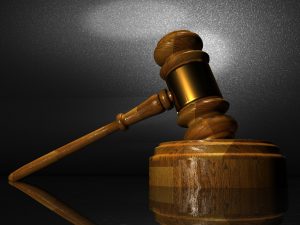 According to the U.S. Department of Housing and Urban Development report, The 2017 Annual Homeless Assessment Report (AHAR) to Congress, nearly 554,000 people were homeless in the United States in 2017. While most were able to stay in emergency shelters or transitional housing more than 192,000 had no shelter to go to.
According to the U.S. Department of Housing and Urban Development report, The 2017 Annual Homeless Assessment Report (AHAR) to Congress, nearly 554,000 people were homeless in the United States in 2017. While most were able to stay in emergency shelters or transitional housing more than 192,000 had no shelter to go to.
The homeless often receive citations for panhandling and other public nuisance violations or are arrested for misdemeanor violations such as petty theft. Some homeless people may not appear in court because they don’t have the means to get there or their need to find food and shelter outweigh all other concerns. Others choose not to appear in court, either because of hygiene concerns, not wanting to make a bad first impression; an inability to defend themselves in court; or a fear of being taken into custody. Even if they do appear in court, they may be required to pay fines they cannot afford. As a consequence of these unresolved legal issues, they may be prevented from accessing services such as employment assistance, housing, counseling, substance abuse treatment and public assistance.
In 1989, San Diego, California established the first Homeless Court Program in the country in order to help homeless defendants get the help they need to become productive members of society. Open only to defendants accused of misdemeanor violations, instead of fines and custody the defendant is ordered to participate in activities as part of a plan designed by the defendant and a shelter caseworker in order to provide the education, training, counseling, substance abuse treatment, and employment assistance needed so the defendant can become self-sufficient. As of January 2018, there were Homeless Court Programs in several jurisdictions in Arizona, California, Colorado, Michigan, Missouri, New Mexico, South Carolina, Texas, Utah, and Washington.
Today’s market size is the number of jurisdictions with Homeless Court Programs in the United States according to the American Bar Association (ABA). Although Detroit, Michigan is not mentioned on the ABA website, the Street Outreach Court Detroit (SOCD), modeled after the Ann Arbor Street Outreach Court, became the 23rd homeless court in the United States in June 2012 according to Street Democracy’s website. SOCD may be “the only court that combines criminal and civil pro bono counsel to address legal matters outside the court’s jurisdiction and tracks the long-term success rate of program participants.”1 “Six months after graduating from the program, 97 percent of participants had stable housing, 91 percent had stable income, and 100 percent had no new misdemeanor or felony charges.”2
1 “The Story of SOCD,” Street Democracy available online here.
2 Annessa Morley, “A Positive Ripple Effect,” Wayne State, Fall 2017, page 31 available online here.
Geographic reference: United States
Year: 2018
Market size: 32
Sources: “Homeless Courts,” American Bar Association, 2018 available online here; Annessa Morley, “A Positive Ripple Effect,” Wayne State, Fall 2017, pages 28-31 available online here; Meghan Henry, et. al., The 2017 Annual Homeless Assessment Report (AHAR) to Congress, December 2017 available online here; “The Story of SOCD,” Street Democracy available online here.
Image source: Activedia, “law-justice-court-judge-legal-1063249,” Pixabay, November 26, 2015 available online here.
